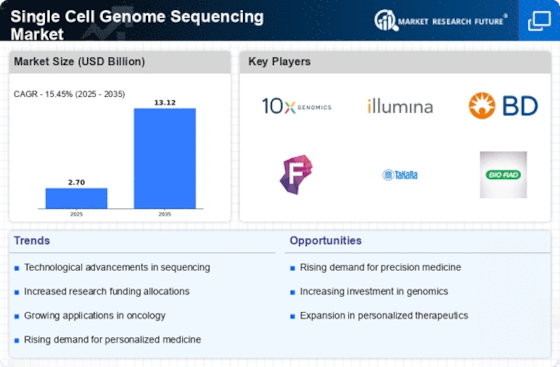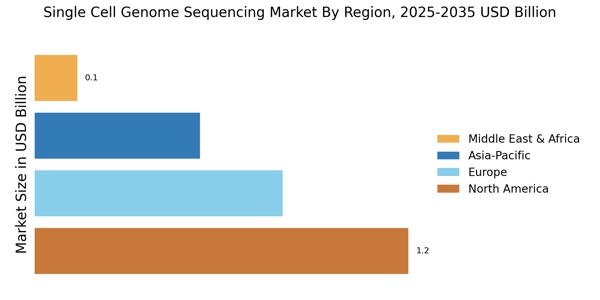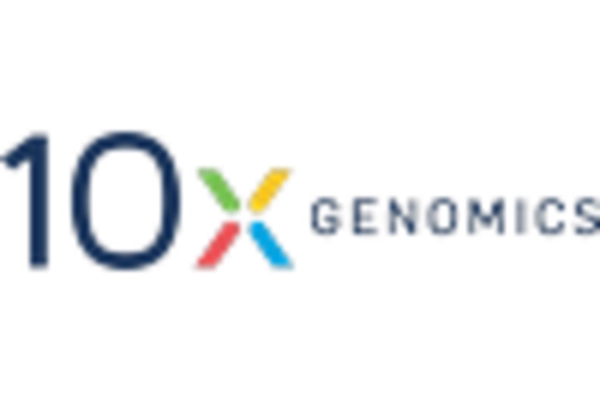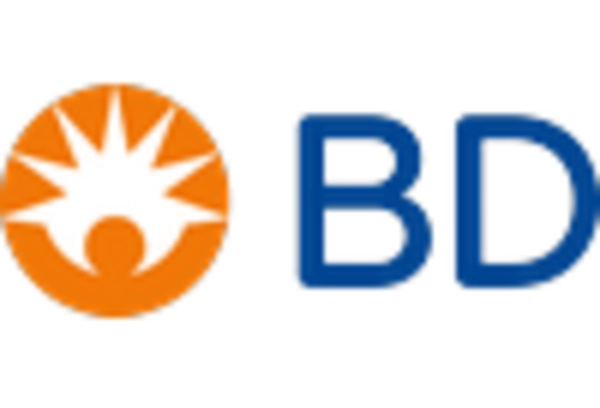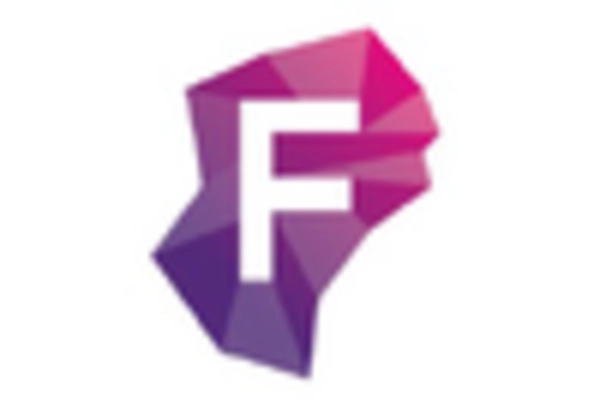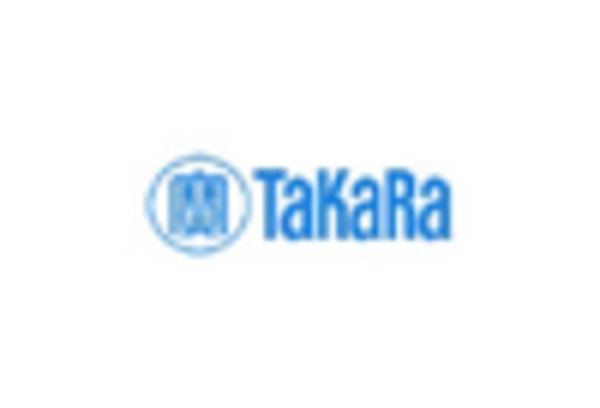Rising Demand for Precision Medicine
The increasing emphasis on precision medicine is a key driver for the Single Cell Genome Sequencing Market. As healthcare shifts towards personalized treatment approaches, the need for detailed genomic information at the single-cell level becomes paramount. This demand is fueled by the growing recognition that diseases, particularly cancer, exhibit significant heterogeneity at the cellular level. By leveraging single-cell sequencing, clinicians can tailor therapies based on the unique genetic makeup of individual patients. The market is expected to witness substantial growth, with projections indicating that the precision medicine sector could reach a valuation of several billion dollars by the end of the decade, thereby bolstering the Single Cell Genome Sequencing Market.
Increased Funding for Genomic Research
Increased funding for genomic research is a pivotal driver for the Single Cell Genome Sequencing Market. Governments and private organizations are recognizing the importance of genomics in advancing healthcare and are allocating significant resources to support research initiatives. This influx of funding facilitates the development of innovative sequencing technologies and enhances the capabilities of existing platforms. As a result, researchers are better equipped to explore the complexities of single-cell genomics, leading to breakthroughs in various fields, including developmental biology and immunology. The market is expected to benefit from this trend, with funding levels projected to rise, thereby fostering growth in the Single Cell Genome Sequencing Market.
Integration of AI and Machine Learning
The integration of artificial intelligence (AI) and machine learning into the Single Cell Genome Sequencing Market is transforming data analysis and interpretation. These technologies enable researchers to process vast amounts of genomic data more efficiently, uncovering patterns and insights that would be challenging to identify manually. AI algorithms can enhance the accuracy of single-cell data interpretation, leading to more reliable results in research and clinical applications. As the volume of data generated by single-cell sequencing continues to grow, the reliance on AI and machine learning is likely to increase, potentially driving market growth. Analysts predict that the adoption of these technologies could lead to a significant increase in the market size, with estimates suggesting a doubling of market value within the next five years.
Growing Applications in Cancer Research
The Single Cell Genome Sequencing Market is significantly driven by its expanding applications in cancer research. As researchers strive to understand the complexities of tumor biology, single-cell sequencing provides invaluable insights into the genetic diversity of cancer cells. This technology allows for the identification of rare cell populations and the characterization of tumor microenvironments, which are critical for developing targeted therapies. The market is witnessing a surge in demand from academic and clinical research institutions focused on oncology, with projections indicating that cancer research could account for a substantial portion of the market share. This trend underscores the importance of single-cell sequencing in advancing cancer diagnostics and therapeutics.
Technological Advancements in Sequencing Technologies
The Single Cell Genome Sequencing Market is experiencing rapid growth due to continuous technological advancements in sequencing technologies. Innovations such as next-generation sequencing (NGS) and microfluidics have significantly enhanced the efficiency and accuracy of single-cell analysis. These advancements allow researchers to obtain high-resolution genomic data from individual cells, which is crucial for understanding complex biological systems. The market is projected to expand as these technologies become more accessible and cost-effective, with estimates suggesting a compound annual growth rate (CAGR) of over 20% in the coming years. As a result, the Single Cell Genome Sequencing Market is poised to attract substantial investments, further driving research and development efforts.


